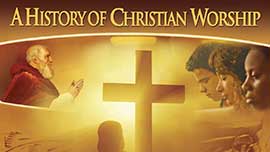STODDARD LET MORE PEOPLE TAKE THE BREAD AND WINE
[For a picture of Stoddard's memorial, follow this link to Find-a-Grave]
FOR SEVERAL DECADES Solomon Stoddard was one of the most influential pastors in New England. Tall, he had a commanding presence and a strong voice. He backed it up with solid learning and a deep understanding of human nature that enabled him to help people resolve spiritual uncertainties. Under his preaching Northampton, Massachusetts, experienced five periods of revival. According to Timothy Dwight, an eighteenth-century president of Yale, American Indian raiders twice spared Stoddard’s life out of respect for his reputation for holiness.
Born in 1643, Stoddard attended Cambridge (Massachusetts) where he applied himself so diligently to his studies that he was made a tutor and librarian in 1666. However, his health broke from too much study. To recover, he sailed to Barbados where he sometimes preached during the two years it took him to recover.
Not long after his return to Massachusetts, the people of Northampton invited him to preach to them. The arrangement was made permanent in 1672. Vigorous into old age, he served in a full capacity until 1725, the year his grandson Jonathan Edwards became his assistant. Altogether he was pastor almost sixty years. Stoddard preached plain sermons that called people to follow Christ. He focused on God’s word as the only source of the knowledge we need for salvation.
However, he was out of step with many Puritans. Congregationalist churches in Massachusetts excluded from the Lord’s table anyone who could not assert a conversion experience. Stoddard dissented from this position. On this day 5 October 1690, he preached a controversial but influential sermon, urging that anyone who had been baptized (usually as a child) and was living a decent life should be allowed to partake of Communion. He argued that the bread and wine are themselves a tool of conversion and should therefore not be denied because someone was unsure of their salvation.
However, his church did not accept his position. When put to a vote, it lost—the older members generally arraying themselves against it, the younger ones siding with it. Other ministers disputed his position, too, including Increase Mather (although Mather later wrote the foreword to Stoddard’s book A Guide to Christ). Stoddard’s successor, Jonathan Edwards, was also against broadening access to Communion.
Stoddard married his predecessor’s widow, Esther, who bore him thirteen children and lived into her nineties. One of his sons became an influential military leader. His grandson Jonathan Edwards became one of the greatest theologians and scholars America has produced.
—Dan Graves
----- ----- -----
For more on Samuel Stoddard, read "Jonathan Edwards: A Gallery of Friends, Foes & Followers" in Christian History #8, Jonathan Edwards and the Great Awakening; "A Dawning in the New World" in Christian History #23, Spiritual Awakenings in North America; and "Jonathan Edwards: A Gallery—The Mind Shapers" in Christian History #77, Jonathan Edwards.

For more on the meaning of the bread and wine (Eucharist) watch A History of Christian Worship: Part 3, The Feast
A History of Christian Worship can be purchased at Vision Video.






